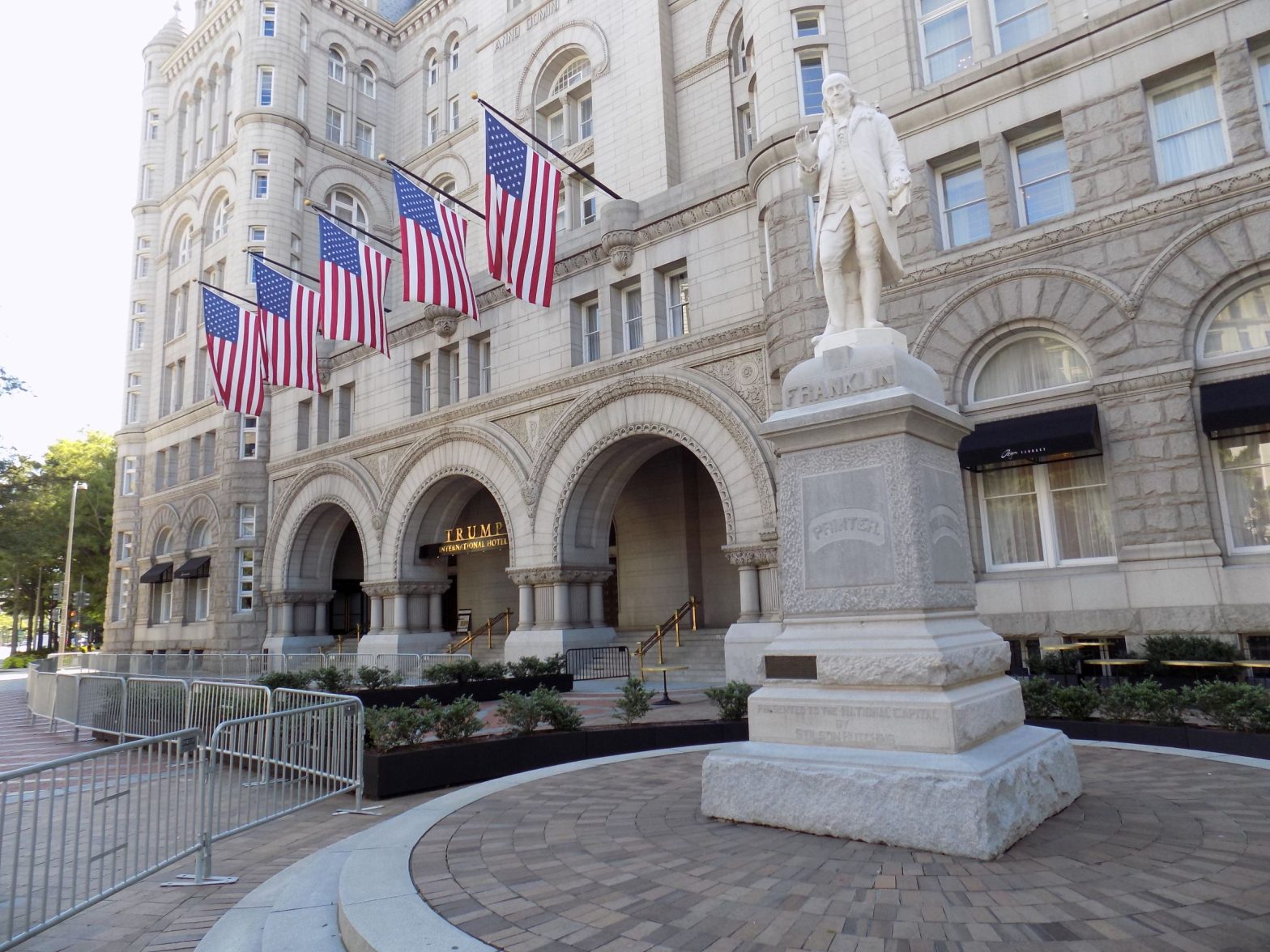Justices to Decide if House Dems Can Get Trump Hotel Docs

WASHINGTON — The U.S. Supreme Court agreed Monday to review a dispute over whether Congress can get access to documents surrounding former President Donald Trump’s lease of a government building he turned into a posh Washington, D.C., hotel.
The House Committee on Oversight and Reform seeks the records as it investigates whether Trump profited illegally from his status as president.
When the Trump administration declined the 2017 request for information from seven Democrats on the committee, they sued.
Trump’s attorneys argued the executive privilege of the presidency exempted him from the lawsuit.
A federal trial court in Washington, D.C., dismissed the lawsuit in 2018, saying members of Congress lacked standing — or a legal right — to sue. A divided three-judge panel of the U.S. Court of Appeals for the D.C. Circuit reversed the lower court in a 2-1 decision in 2020.
The appellate court ruled that the congressmen were acting lawfully by “suing to enforce statutorily created informational rights against federal agencies.”
The Trump Organization leased the Old Post Office Pavilion from the U.S. General Services Administration for $180 million over 60 years.
The Old Post Office served as the main post office for Washington, D.C., from 1899 to 1914 before it was converted to federal office space. It is located a short walking distance from the White House and continues to be owned by the federal government.
The GSA was renting it as retail space until a subsidiary of the Trump Organization leased it in 2013.
Trump’s DJT Holdings LLC renovated it and operated it as the luxury Trump International Hotel from 2016 to 2022. DJT Holdings LLC then sold it to CGI Merchant Group, which reopened it as the Waldorf Astoria Washington on June 1, 2022.
While it operated as Trump International Hotel, foreign dignitaries and various kinds of executives who did business with the U.S. government or the Trump Organization often stayed there.
Trump International Hotel prompted numerous complaints from other hotel owners in Washington. They said the Trump Organization was taking business from them while the foreign dignitaries and executives curried favor with the president by staying in his hotel.
It also led to allegations from Democrats in Congress over whether Trump violated the emoluments clause of the Constitution. The clause forbids high-level government officials from receiving fees, profits or gifts from foreign governments without the consent of Congress.
The Biden administration joined in a rare show of support for Trump in opposing the congressional lawsuit.
In a filing with the Supreme Court, the Biden administration wrote that if the Democratic lawmakers win their lawsuit, “A congressional minority — ‘or even an ideological fringe of the minority’ — could bring cases to ‘distract and harass executive agencies and their most senior officials.'”
The Supreme Court’s announcement on the case Monday comes amid mounting legal troubles for the former president.
In addition to facing criminal charges in New York on 34 felony counts of falsifying business records, he is likely to be compelled soon to give a deposition in a lawsuit by former FBI agents. He won a delay in the lawsuit on Friday.
Two former FBI agents claim they were wrongfully fired for investigating Russian interference in the 2016 election and Trump’s handling of classified documents.
Text messages exchanged between former agents Peter Strzok and Lisa Page criticized Trump, which officially was the reason they were fired.
Strzok and Page say in their lawsuit the real reason they were fired was a political reprisal while they were properly performing their jobs. Strzok also was an FBI attorney.
Strzok wanted to question Trump during a deposition but the Justice Department intervened by arguing in U.S. District Court that FBI Director Christopher Wray must be deposed first. The normal order for depositions when the government is sued runs from officials with lowest seniority to highest seniority.
A deposition for Trump first would make it “impossible to determine if the director’s deposition might obviate the need to depose the former president,” Justice Department attorneys wrote in a brief submitted to the court.
Judge Amy Berman Jackson largely agreed with the Justice Department but expressed frustration in her ruling that “the parties have done nothing more than wrangle over the order of the two depositions.”
She added, “However, in order to get the parties — who apparently still cannot agree on anything — over this impasse, it is hereby ordered that the deposition of Christopher Wray proceed first.”
The Supreme Court case is Robin Carnahan v. Carolyn Maloney et al., number 22-425, in the Supreme Court of the United States.
You can reach us at [email protected] and follow us on Facebook and Twitter






















